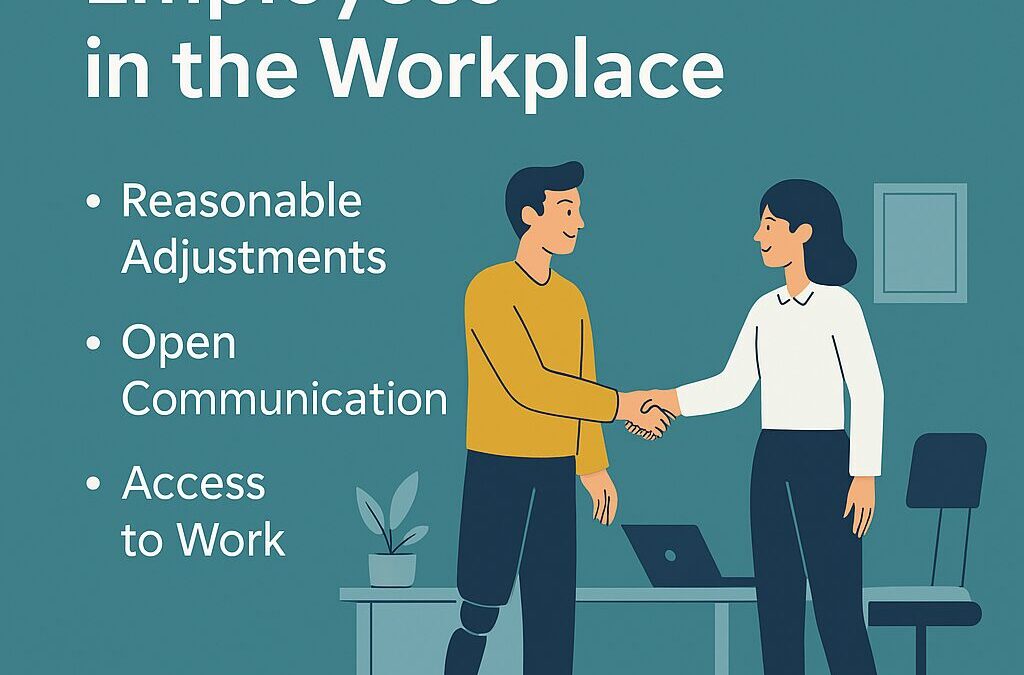Creating an inclusive workplace isn’t just good practice — it’s good business. For amputees, returning to or starting work can be a powerful step toward independence, purpose, and stability. As an employer, you play a key role in making that journey a positive one.
This guide outlines how to support amputee team members, what reasonable adjustments may be needed, and how government support — such as Access to Work — can help.
Understanding the Needs of Amputee Employees
Amputees may have different needs depending on:
-
The level and type of amputation (e.g. upper vs. lower limb)
-
Their prosthetic use and mobility
-
Pain or fatigue levels
-
Mental health or trauma related to limb loss
-
Work environment (office, remote, field-based, etc.)
It’s vital not to make assumptions — the best support begins with open, respectful communication.
Reasonable Adjustments You Might Consider
Under the Equality Act 2010, you are legally required to make reasonable adjustments to remove barriers at work. Examples for amputees include:
-
Accessible entrances and workspaces (e.g., ramps, widened doorways)
-
Adapted desks or equipment (e.g., voice-controlled tech, footstools, standing desks)
-
Flexible working (e.g., hybrid hours or phased return to work)
-
Reallocation of certain manual tasks if they pose a physical risk
-
On-site support or assistance with transport and mobility
What is Access to Work?
Access to Work is a government-funded programme that can help cover the cost of workplace support for disabled employees, including amputees. It’s not means-tested and does not affect other benefits.
It can fund:
-
Specialised equipment (e.g., adapted chairs, software)
-
Travel to and from work (e.g., taxis if public transport isn’t accessible)
-
A support worker or job coach
-
Mental health support
-
Communication support for interviews or onboarding
How It Works:
-
Employee applies online via the gov.uk website.
-
An assessor contacts them to discuss their role and needs.
-
A support package is recommended — with funding potentially available for the employer to claim back.
Building a Culture of Inclusion
Support doesn’t stop with adjustments. To truly welcome and retain amputee staff:
-
Train your team on disability inclusion and etiquette
-
Celebrate awareness days or personal milestones
-
Offer regular check-ins to adapt support over time
-
Encourage peer support and visibility of role models
✅ Final Thoughts
Amputees bring a wide range of skills, experience, and resilience to the workplace. With the right support — and tools like Access to Work — there’s no limit to what they can achieve.
By leading with empathy and action, you’ll not only meet your legal duties — you’ll create a workplace that works better for everyone.


Recent Comments